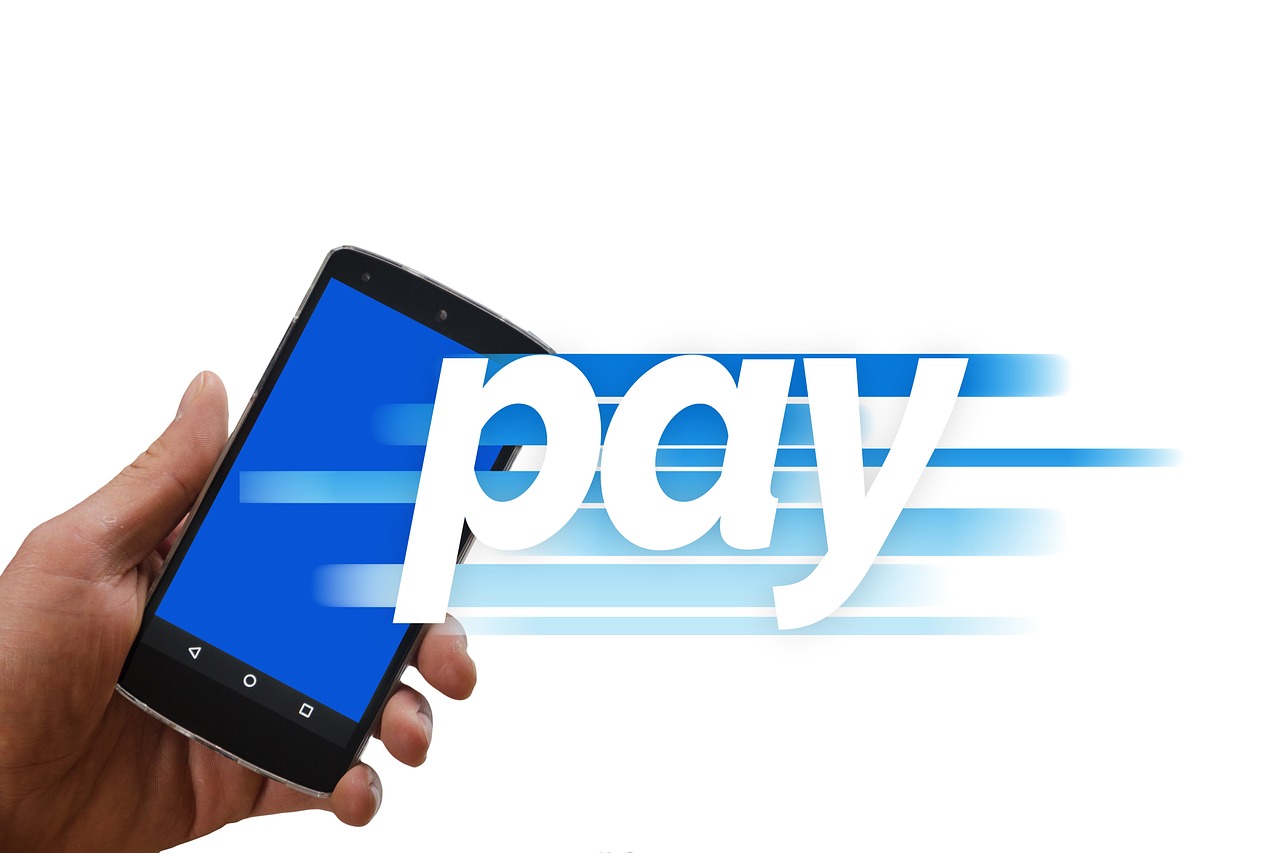Online Relationships - Balancing Trust and Security
In today's digital age, online relationships have become a common aspect of our lives. Whether it's a budding romance, a friendship forged through mutual interests, or a professional connection, the dynamics of these relationships often hinge on two critical elements: trust and security. Navigating this intricate balance can feel like walking a tightrope, where one misstep could lead to misunderstandings or even dangerous situations. So, how do we cultivate trust while ensuring our safety? The answer lies in effective communication, understanding privacy, and being aware of the potential pitfalls that come with online interactions.
At the core of any relationship is trust, a vital ingredient that allows individuals to connect on a deeper level. In the online realm, however, establishing this trust can be quite the challenge. Without the benefit of face-to-face interactions, it can be difficult to gauge someone’s authenticity. Think of it like trying to read a book with the cover closed; you can’t truly know what’s inside until you open it. To build trust online, one must be attuned to the nuances of digital communication, recognizing the signs of reliability and authenticity. This may include checking for consistent communication, mutual interests, and even the tone of messages exchanged. The more transparent and honest both parties are, the stronger the foundation of trust becomes.
While trust is essential, maintaining security in online relationships is equally important. This is where recognizing red flags comes into play. Just like a warning light on your car dashboard, these signals can indicate potential issues that need addressing. Common red flags might include:
- Inconsistent information or stories
- Avoidance of personal questions
- Excessive secrecy or reluctance to share details
- Pressure to move the relationship forward too quickly
By staying vigilant and aware of these warning signs, individuals can protect themselves from deceit or manipulation, ensuring their online interactions remain healthy and secure.
Effective communication is the lifeblood of any relationship, and in the online space, it takes on even greater significance. Open dialogues can enhance understanding and help mitigate misunderstandings that often arise from text-based conversations. Imagine trying to navigate a ship through fog; clear communication acts as your lighthouse, guiding you safely to shore. It’s important to express feelings, ask questions, and clarify intentions. This not only builds trust but also fosters a sense of safety, as both parties feel heard and valued.
Establishing clear boundaries is crucial for personal safety in online relationships. Just as you wouldn’t allow someone to invade your personal space in the physical world, the same principle applies online. Communicating limits ensures that both parties feel respected and secure. Discuss what is acceptable and what isn’t—whether it’s about sharing personal information, time spent communicating, or the pace at which the relationship progresses. Having these conversations upfront can prevent future conflicts and misunderstandings.
In our tech-savvy world, utilizing modern technology wisely can significantly enhance security in online relationships. Many platforms offer privacy settings and security features designed to protect personal information. Take the time to familiarize yourself with these tools. For instance, consider adjusting your social media privacy settings to limit who can see your posts or profile. Additionally, using secure passwords, enabling two-factor authentication, and being cautious about the information you share can create a protective barrier around your online interactions.
Having a strong support network can provide reassurance in online relationships. Sharing your experiences with trusted friends or family members can offer valuable perspectives and advice. Think of it as having a safety net; if you ever feel uncertain or uneasy, you can rely on them to help you navigate the complexities of your online interactions. They can help you spot red flags you might have missed and provide emotional support when needed.
Privacy is a significant concern in online relationships. The digital landscape is fraught with risks, and oversharing can lead to dire consequences. It’s essential to safeguard your personal information and be mindful of what you choose to disclose. Remember, once something is online, it can be challenging to take it back. So, consider the implications of sharing your location, personal stories, or sensitive information. A good rule of thumb is to share gradually; build trust over time rather than laying everything out on the table at once.
Understanding what to share and what to keep private is crucial in online interactions. Here are some practical tips for managing your personal data:
- Limit the amount of personal information you share on social media.
- Be cautious about sharing your phone number or address until you fully trust the other person.
- Regularly review your privacy settings on various platforms.
- Consider using temporary or secondary accounts for casual interactions.
By being mindful of your personal information, you can navigate online relationships with greater confidence and security.
Navigating the legal landscape is essential for online safety. Understanding relevant laws and regulations can impact your rights as a user and how you engage in online relationships. For instance, laws regarding cyberbullying, harassment, and data protection vary by region. Familiarizing yourself with these laws can empower you to take action if you ever find yourself in a precarious situation. Additionally, knowing your rights can help you feel more secure in your online interactions.
1. How can I tell if someone is being honest online?
It's important to look for consistency in their stories, how they respond to questions, and whether they are open about their lives. Trust your instincts—if something feels off, it might be worth investigating further.
2. What should I do if I encounter a red flag?
If you notice a red flag, communicate your concerns directly with the person. If their response is evasive or dismissive, consider reevaluating the relationship.
3. How can I protect my personal information online?
Utilize privacy settings on social media, be cautious about what you share, and consider using secure passwords and two-factor authentication for your accounts.
4. Is it safe to meet someone from an online relationship in person?
Meeting someone in person can be safe if you take precautions. Always meet in public places, let someone know where you are going, and trust your instincts.

Understanding Online Trust
This article explores the delicate balance between trust and security in online relationships, highlighting the importance of communication, privacy, and awareness in fostering healthy connections in the digital age.
Trust is a foundational element in any relationship. In the online context, it involves recognizing the signs of authenticity and reliability, which can be challenging in a virtual environment. Unlike face-to-face interactions, where body language and tone of voice provide cues, online communication often lacks these essential elements. This absence can lead to misunderstandings or misplaced trust. So, how do we navigate this murky water?
First, it's crucial to understand that trust is built over time. Just like a house requires a strong foundation, online relationships need consistent communication and shared experiences to flourish. When you engage with someone online, consider these key aspects:
- Consistency: Does their behavior match their words? Consistency in communication can indicate reliability.
- Transparency: Are they open about their life and experiences? A trustworthy person will willingly share information without hesitation.
- Engagement: Are they genuinely interested in your thoughts and feelings? Active engagement fosters a deeper connection.
Recognizing these aspects can help you gauge whether someone is worth your trust. However, it’s equally important to remain cautious. The online world is filled with individuals who may not have the best intentions. Scammers and manipulators often disguise themselves as trustworthy individuals, making it essential to stay vigilant.
To further illustrate this, consider the following table that outlines the differences between healthy and unhealthy online trust:
| Aspect | Healthy Trust | Unhealthy Trust |
|---|---|---|
| Communication | Open and honest dialogue | Secrecy and evasiveness |
| Boundaries | Respect for personal space | Disregard for personal boundaries |
| Support | Encouragement and understanding | Manipulation and control |
In essence, understanding online trust is about balancing your desire for connection with your need for safety. It's like walking a tightrope; you want to lean into the relationship but also keep your balance to avoid falling into a trap. Remember, trust should never be given away freely; it should be earned through consistent actions and mutual respect.
As you venture into the realm of online relationships, keep these principles in mind. They will not only help you build trust but also protect you from potential pitfalls. After all, a strong foundation of trust can lead to meaningful connections that enrich our lives in this digital age.
Q: How can I tell if someone is trustworthy online?
A: Look for consistency in their communication, transparency about their life, and genuine engagement with you. Trust is built over time through shared experiences.
Q: What should I do if I suspect someone is not trustworthy?
A: Trust your instincts. If something feels off, it’s essential to communicate your concerns or even distance yourself from the relationship if necessary.
Q: How can I protect my privacy while building trust online?
A: Be mindful of the information you share. Utilize privacy settings on social media, and consider what personal details are necessary to disclose in the relationship.

Identifying Red Flags
In the vast digital landscape where online relationships flourish, being vigilant about potential red flags is essential for your safety and well-being. While many connections can blossom into meaningful relationships, some may harbor deceit or manipulation. So, how do you differentiate the genuine from the dubious? It's crucial to recognize signs that may indicate trouble ahead.
One of the primary red flags to watch for is inconsistency in communication. If someone frequently changes their story or avoids answering direct questions, it could be a sign that they are not being truthful. Trust your instincts; if something feels off, it probably is. Additionally, consider the nature of their online presence. Do they have a well-rounded social media profile, or is it sparse and lacking genuine engagement? A lack of authenticity can often be a warning sign.
Another significant red flag is the pressure to move quickly in the relationship. If someone is pushing for rapid progression, whether it’s to meet in person, share personal information, or even send money, this is a cause for concern. Healthy relationships take time to develop, and anyone who rushes you might have ulterior motives. Moreover, be cautious of individuals who seem overly secretive about their life or refuse to share personal details. This lack of transparency can indicate that they are hiding something.
Furthermore, consider how they react to your boundaries. If your partner dismisses your concerns or tries to manipulate you into changing your limits, this is a significant red flag. Respect for personal boundaries is fundamental in any relationship, especially online where trust is built through communication. If someone disregards your comfort levels, it’s time to reevaluate the relationship.
To help you identify these red flags more effectively, here’s a quick overview:
- Inconsistency in stories: Frequent changes in their narrative can signal dishonesty.
- Pressure to move quickly: Rushing the relationship can indicate ulterior motives.
- Lack of transparency: If they are secretive about their life, be cautious.
- Disregard for boundaries: A partner who ignores your limits is not respecting you.
Being aware of these warning signs can empower you to make informed decisions about your online relationships. Remember, it’s always better to err on the side of caution. If you feel uncomfortable or uncertain, don’t hesitate to seek advice from trusted friends or family members. They can provide perspective and support as you navigate the complexities of online connections.

The Role of Communication
Effective communication is the lifeblood of any relationship, and when it comes to online interactions, it takes on an even more critical role. In the digital realm, where nuances can be lost in translation, the way we express ourselves becomes paramount. Think about it: when you're chatting with someone online, you don't have the benefit of body language or facial expressions to convey your emotions. Instead, every word counts, and the tone can easily be misinterpreted. This is why establishing a clear and open line of communication is essential for building trust.
Imagine trying to navigate a ship through foggy waters without a compass. That's what it feels like to engage in online relationships without effective communication. It can lead to misunderstandings, confusion, and ultimately, a breakdown of trust. To avoid this, consider the following key strategies:
- Be Clear and Concise: When expressing your thoughts or feelings, clarity is vital. Avoid vague language and be direct about your intentions.
- Ask Questions: Show genuine interest in the other person’s thoughts and feelings. This not only fosters deeper connections but also helps clarify any uncertainties.
- Practice Active Listening: Make sure to acknowledge what the other person is saying. This can be as simple as summarizing their points or asking follow-up questions.
Moreover, utilizing the right communication tools can enhance your interactions significantly. Video calls, for instance, can help bridge the gap that text-based communication often leaves. Seeing someone's face while they speak can add layers of meaning and emotion that words alone might miss. Likewise, using voice messages can convey tone and inflection, reducing the likelihood of misinterpretation.
But it’s not just about the mode of communication; it’s also about timing and frequency. Regular check-ins can help maintain the connection and ensure that both parties feel valued and understood. Just like watering a plant, consistent communication nurtures the relationship, allowing it to grow stronger over time. On the flip side, neglecting this aspect can lead to feelings of disconnect and insecurity.
In conclusion, the role of communication in online relationships cannot be overstated. It serves as the foundation upon which trust is built and maintained. By being clear, engaging actively, and utilizing the right tools, we can foster deeper connections that withstand the challenges of the digital world. So, next time you engage in an online conversation, remember: your words are powerful, and how you use them can make all the difference.

Setting Boundaries
In the vast ocean of online relationships, where every interaction can feel like navigating uncharted waters, is your life raft. Boundaries aren’t just about saying “no” or shutting someone out; they are essential for creating a safe and respectful environment for both parties involved. Think of boundaries as the invisible lines that define your comfort zone. They help you communicate your needs and expectations clearly, ensuring that you and your partner understand each other's limits.
When you establish boundaries, you’re essentially laying down a roadmap for your relationship. This roadmap guides both individuals in understanding what behaviors are acceptable and what might cross the line. For instance, if you value your privacy, it’s important to communicate that you’re not comfortable sharing certain personal details until trust is firmly established. This not only protects your personal space but also encourages your partner to respect your wishes.
Moreover, boundaries can help prevent misunderstandings and conflicts. Imagine you’re chatting with someone online, and they start asking you questions that feel invasive. Instead of feeling uncomfortable, you can simply say, “I appreciate your interest, but I prefer not to discuss that right now.” This approach not only reinforces your boundary but also opens up a dialogue about what you both are comfortable sharing.
Here are some key areas where establishing boundaries can be particularly beneficial:
- Time Management: Decide how much time you want to dedicate to online interactions. It’s easy to get swept away in endless chats, but setting limits can help maintain a healthy balance with your offline life.
- Emotional Safety: Be clear about what topics are off-limits or what kinds of discussions make you uncomfortable. This helps in fostering a safe emotional space.
- Personal Information: Determine what personal details you’re willing to share and what should remain private. This is crucial in protecting your identity and personal safety.
Ultimately, setting boundaries is about respect—respect for yourself and for the other person. When both parties understand and honor these boundaries, it cultivates a sense of trust and safety, allowing the relationship to flourish. Remember, boundaries are not walls; they are bridges that connect two people while still maintaining individual integrity. So, don’t hesitate to express your needs and limits. You’ll find that doing so can lead to a more fulfilling and secure online relationship.

Utilizing Technology Wisely
In today's digital landscape, technology is not just a tool; it's a lifeline that connects us to others, especially in online relationships. However, with great power comes great responsibility. It's essential to utilize technology wisely to enhance our security while fostering meaningful connections. Imagine your online presence as a house; you wouldn't leave the doors wide open for anyone to walk in, right? Similarly, managing your digital footprint is crucial for maintaining your safety and privacy.
First and foremost, take advantage of the privacy settings available on social media platforms and messaging apps. These tools empower you to control who sees your information and how much they can see. For instance, platforms like Facebook and Instagram allow you to customize your audience for posts, ensuring that only your trusted friends can view your personal updates. It's like having a selective guest list for your digital party—only the people you want can come in.
Moreover, using two-factor authentication (2FA) is a game-changer when it comes to securing your accounts. This extra layer of security requires not just your password but also a code sent to your phone or email. Think of it as a bouncer at your digital door, checking IDs before allowing anyone in. By enabling 2FA, you're significantly reducing the risk of unauthorized access to your personal information.
Additionally, be mindful of the information you share online. Oversharing can lead to unintended consequences, such as identity theft or unwanted attention. It's wise to think before you post. Ask yourself: "Is this information necessary for others to know?" If not, it might be better to keep it to yourself. This approach not only protects your privacy but also helps maintain a sense of mystery, which can be appealing in online relationships.
Lastly, consider using secure communication tools. Apps like Signal and WhatsApp offer end-to-end encryption, ensuring that your conversations remain private. This security feature is like having a secret language that only you and your trusted partner can understand. By choosing secure platforms, you can communicate freely without the fear of prying eyes.
In conclusion, utilizing technology wisely is about striking a balance between connection and security. By leveraging privacy settings, enabling two-factor authentication, being cautious with the information you share, and opting for secure communication tools, you can protect yourself while still enjoying the benefits of online relationships. Remember, in this vast digital universe, your safety is paramount, and technology can be your ally in achieving that.
- What are privacy settings, and why are they important?
Privacy settings allow you to control who can see your information and posts on social media. They are crucial for protecting your personal data from unwanted viewers. - What is two-factor authentication?
Two-factor authentication (2FA) is a security measure that requires not only a password but also a second form of identification, such as a code sent to your phone, to access your account. - How can I manage my personal information online?
You can manage your personal information by being selective about what you share, adjusting privacy settings, and regularly reviewing your online presence. - What are secure communication tools?
Secure communication tools are applications that offer encryption to protect your messages from being intercepted. Examples include Signal and WhatsApp.

Building a Support System
In the ever-evolving landscape of online relationships, having a solid support system is not just a luxury; it’s a necessity. Think of it as your safety net, ready to catch you if you stumble while navigating the often treacherous waters of digital interactions. Whether you’re diving into a new romantic connection, making friends across the globe, or collaborating with colleagues online, your support system can provide invaluable insights and reassurance.
So, who should be part of this support system? Ideally, it should consist of trusted friends and family members who understand your journey and can offer honest feedback. They can serve as sounding boards, helping you process your feelings and experiences. It’s like having a personal advisory board, where you can share your online relationship stories and get perspectives that you might not see on your own. Their outside view can help you identify potential red flags or validate your feelings about a situation.
Moreover, sharing your online experiences with someone who knows you well can help you feel less isolated. It’s easy to get caught up in the digital bubble, where everything seems perfect on the surface. But when you open up to a friend or family member, you invite a fresh perspective that can ground you. This is crucial, especially in moments of doubt or confusion. You might find that what seems like a small issue to you is a significant concern for someone who cares about your well-being.
Additionally, consider joining online communities that align with your interests or experiences. These groups can offer a sense of belonging and provide a platform for sharing experiences with like-minded individuals. Just remember, while these communities can be incredibly supportive, it’s essential to approach them with caution. Not everyone online has good intentions, so ensure you maintain your boundaries and remain vigilant.
To help you understand the benefits of building a support system, here’s a quick overview:
| Benefits of a Support System | Description |
|---|---|
| Emotional Support | Having someone to talk to can alleviate feelings of anxiety and loneliness. |
| Perspective | Friends and family can provide insights that you might not consider. |
| Accountability | They can help keep you grounded and remind you of your values and boundaries. |
| Shared Experiences | Connecting with others who have similar experiences can foster a sense of community. |
In conclusion, building a robust support system is crucial for maintaining healthy online relationships. It’s about creating a circle of trust and understanding that helps you navigate the complexities of digital interactions. So, don’t hesitate to reach out to those around you and foster connections that can enrich your online experience.
- Why is a support system important in online relationships?
A support system provides emotional support, perspective, and accountability, helping you navigate the complexities of online interactions. - Who should be part of my support system?
Your support system should consist of trusted friends and family members who understand your journey and can offer honest feedback. - How can I find online communities for support?
Look for groups that align with your interests on social media platforms or dedicated forums. Just remember to approach them with caution.

Privacy Considerations
In today's digital age, privacy has become a paramount concern, especially in online relationships. With the click of a button, we can connect with people from all over the world, but this convenience often comes at a price. It’s essential to understand that sharing personal information online can expose you to various risks, including identity theft, cyberbullying, and emotional manipulation. So, how do we navigate this tricky landscape while still enjoying the benefits of online connections?
First and foremost, it’s crucial to be mindful of what you share. Think of your personal information as a treasure chest; you wouldn’t leave it wide open for anyone to rummage through, would you? The same goes for your online presence. Before posting anything, ask yourself: Is this information something I’m comfortable with anyone seeing? This simple question can help you filter what’s appropriate to share and what should remain private.
Moreover, it’s essential to familiarize yourself with the privacy settings on the platforms you use. Most social media sites and messaging apps offer various security features that allow you to control who sees your content. For instance, you can adjust your profile settings to limit visibility to only trusted friends or family. This way, you can create a safer online environment while still engaging with others.
Oversharing is another common pitfall in online relationships. It’s easy to get caught up in the excitement of a new connection and share too much too soon. While vulnerability can be a beautiful aspect of relationships, it’s important to pace yourself. Consider discussing your thoughts and feelings with someone you trust before divulging sensitive information to someone you’ve just met online. This can help you gauge whether your instincts are correct or if you might be rushing into something that requires more caution.
To further illustrate the importance of privacy, let’s look at a few common types of personal information that should generally be kept private:
- Full Name: Avoid using your full name in public forums or profiles.
- Address: Never share your home address or location details.
- Financial Information: Keep your bank details and financial status to yourself.
- Personal Identification Numbers: Don’t share your social security number or any other ID numbers.
Another critical aspect of online privacy is understanding the legal landscape surrounding it. There are laws and regulations designed to protect users, but they can vary significantly from one region to another. Familiarizing yourself with these laws can empower you to make informed decisions about your online interactions. For instance, the General Data Protection Regulation (GDPR) in Europe is a robust framework that governs how personal information is handled. Knowing your rights can help you take action if you feel your privacy has been compromised.
In conclusion, maintaining privacy in online relationships is not just about protecting your information; it’s about fostering a safe environment where trust can thrive. By being cautious about what you share, utilizing privacy settings, and understanding the legal context, you can enjoy meaningful connections without compromising your security.
Q: How can I protect my privacy while dating online?
A: Always use a nickname instead of your full name, avoid sharing personal details too quickly, and utilize privacy settings on dating platforms.
Q: What should I do if I feel my privacy has been violated?
A: Document the incident, report it to the platform, and consider speaking to a trusted friend or legal advisor for further action.
Q: Are there any tools to help manage my online privacy?
A: Yes, there are various privacy tools and browser extensions that can help manage your online footprint and enhance your security.

Managing Personal Information
In the vast digital landscape where online relationships thrive, managing your personal information is not just a smart move—it's essential. Think of your personal data as a treasure chest: you wouldn't leave it wide open for anyone to rummage through, right? Similarly, being selective about what you share online can safeguard your emotional and physical well-being. It's all about finding that sweet spot between being open and staying safe.
First and foremost, understanding what constitutes personal information is crucial. This includes your full name, address, phone number, email, and even details like your workplace or school. By keeping these details close to your chest, you can significantly reduce the risk of unwanted attention or manipulation. But what about sharing your interests or hobbies? While these might seem harmless, they can also provide a roadmap for someone with ill intentions. Thus, it's wise to think critically about what you disclose.
Moreover, when engaging in online conversations, always consider the context. For instance, sharing a funny story about your weekend is generally safe, but revealing that you're home alone or detailing your daily routine can expose you to risks. It's like inviting someone into your life without realizing they might not have your best interests at heart. So, how can you effectively manage your personal information?
Here are some practical tips:
- Limit Sharing: Share only what is necessary. If a conversation feels too intimate too quickly, it's okay to hold back.
- Use Privacy Settings: Familiarize yourself with the privacy settings on social media platforms. Adjust them to control who can see your information.
- Think Before You Click: Before accepting friend requests or messages from unfamiliar profiles, take a moment to evaluate their authenticity.
- Regularly Review Your Accounts: Periodically check your online profiles to ensure you're not oversharing or that old posts don't contain sensitive information.
In addition to these tips, consider the implications of oversharing. Once you post something online, it can be challenging to retract it. A seemingly innocent photo or comment can be misinterpreted or used against you in ways you never anticipated. This highlights the importance of thinking long-term about your digital footprint. Ask yourself: will this information come back to haunt me later? If there's any doubt, it's better to err on the side of caution.
Finally, remember that managing personal information isn't a one-time task; it's an ongoing process. As you navigate different online relationships, stay vigilant and adaptable. The digital world is constantly evolving, and so are the tactics of those who might seek to exploit it. By being proactive and mindful, you can enjoy the benefits of online connections while keeping your personal information secure.
- What types of personal information should I avoid sharing online?
It's best to avoid sharing sensitive information such as your full name, home address, phone number, financial details, and anything that could reveal your location or daily routine. - How can I ensure my privacy settings are effective?
Regularly review the privacy settings on your social media accounts. Make sure you're aware of who can see your posts and personal information, and adjust settings to limit access to trusted friends only. - What should I do if I feel uncomfortable sharing something?
Trust your instincts. If something feels off or makes you uncomfortable, it's perfectly acceptable to decline to share that information. - Can I ever completely erase my online presence?
While it's challenging to remove all traces of your online presence, you can take steps to minimize it by deleting old accounts, posts, and photos. However, be aware that some information may persist in other forms.

Legal Aspects of Online Relationships
When it comes to online relationships, the legal landscape can be as murky as a foggy morning. Understanding the legal aspects is crucial for anyone navigating the digital dating scene or maintaining friendships online. First and foremost, it’s essential to recognize that laws governing online interactions can vary significantly from one jurisdiction to another. This means that what might be perfectly acceptable in one country could land you in hot water in another.
One of the most pressing issues is cybersecurity. As more of our lives move online, the risk of personal information being misused increases. Laws like the General Data Protection Regulation (GDPR) in Europe set strict guidelines on how personal data should be handled. For example, if you're sharing personal information with someone you met online, it’s vital to ensure that they are compliant with these regulations. Failure to do so can lead to hefty fines and legal repercussions.
Moreover, issues such as harassment and defamation are significant concerns in online relationships. If someone crosses the line and engages in threatening behavior, understanding your rights can empower you to take action. Many jurisdictions have laws that protect individuals from online harassment, allowing victims to seek justice through legal channels. It’s essential to document any incidents, as this can serve as critical evidence should you need to escalate the situation.
Another aspect to consider is the age of consent in online relationships. Just because two people meet online doesn’t mean that all interactions are lawful. Different countries have varying laws regarding the age at which individuals can legally engage in online relationships, especially when it comes to sharing explicit content. Ignorance of these laws is not an excuse, and violations can lead to severe legal consequences.
In addition to these issues, there are also contractual obligations to consider. If you're engaging in online dating or business relationships, the terms of service for the platforms you use may include clauses that affect your rights. For instance, many dating apps have user agreements that outline acceptable behavior and the consequences of violations. Understanding these agreements can help you navigate the online world more safely.
To help clarify some of these legal aspects, here’s a brief overview of key areas to keep in mind:
| Legal Aspect | Description |
|---|---|
| Cybersecurity | Regulations on how personal data is collected and used. |
| Harassment | Laws protecting individuals from online bullying and threats. |
| Age of Consent | Legal age for engaging in online relationships. |
| Contractual Obligations | Terms of service agreements that govern user behavior. |
Ultimately, being aware of the legal implications of online relationships can help you navigate the digital landscape more securely. By understanding your rights and responsibilities, you can foster healthier connections while protecting yourself from potential legal pitfalls. Remember, knowledge is power, and staying informed can make all the difference in your online experiences.
- What should I do if I feel threatened online? Document any threatening messages and report them to the platform and local authorities.
- How can I protect my personal information? Be cautious about what you share and review privacy settings on social media and dating platforms.
- What are the consequences of online harassment? Legal action can be taken against individuals who engage in harassment, including fines and imprisonment.
Frequently Asked Questions
- What are the key elements of trust in online relationships?
Trust in online relationships hinges on authenticity, reliability, and consistent communication. It's about feeling secure enough to share personal thoughts and feelings, knowing that the other person respects your boundaries and values your privacy.
- How can I identify red flags in online interactions?
Look out for inconsistencies in stories, evasive answers to personal questions, and a lack of transparency. If someone pressures you for personal information too soon or makes you feel uncomfortable, these are significant red flags that shouldn't be ignored.
- Why is communication crucial in online relationships?
Effective communication helps to build trust and understanding. It allows both parties to express their feelings, clarify misunderstandings, and establish a deeper connection. Think of it as the glue that holds your relationship together, especially when physical cues are absent.
- How do I set boundaries in an online relationship?
Start by discussing your comfort levels regarding personal information, time spent online, and emotional investment. Clearly communicate what you are and aren't okay with, ensuring that both you and your partner feel respected and secure.
- What technology can help enhance security in online relationships?
Utilize privacy settings on social media platforms, enable two-factor authentication, and be mindful of the information you share. Tools like secure messaging apps can also provide an extra layer of protection for your conversations.
- How can I build a support system for my online relationship?
Share your experiences with trusted friends or family members who can provide perspective and advice. Having a support network can help you feel more secure and validated in your online interactions, making it easier to navigate challenges.
- What privacy considerations should I keep in mind?
Always be cautious about oversharing personal information. Consider what details are necessary to share and which ones should remain private. Remember, once something is online, it can be difficult to take it back.
- How can I manage my personal information effectively?
Be selective about what you share and with whom. Regularly review your privacy settings on social media and think twice before posting anything that could compromise your safety or privacy.
- What legal aspects should I be aware of in online relationships?
Familiarize yourself with laws regarding online harassment, privacy rights, and data protection. Understanding these legal frameworks can help you navigate your online interactions more safely and assert your rights when necessary.



















